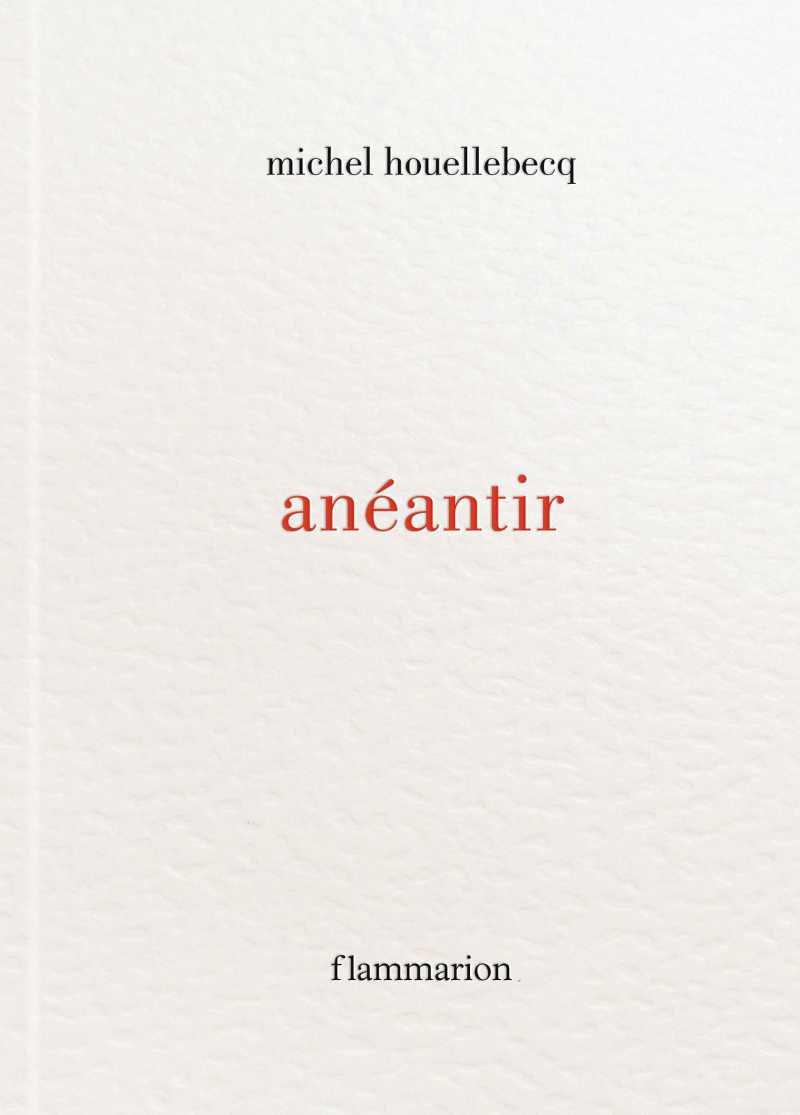12/06/2022
"Anéantir" by Michel Houellebecq
Anéantir – to reduce to nothing or plunge into a state of utter despair. It was not without reason that Michel Houellebecq chose this infinitive for the French title of his eighth novel; to revisit the fundamental law of nature – the progressive and inevitable degradation of the body that turns every living being to dust; to draw attention to the greatest taboo of the West - death - and thus plunge its readers into despair.
We are indeed devastated by the omnipresence of themes related to the fragility, mediocrity and transience of human life, by the importance of the memento mori motif that never ceases to haunt the pages of this novel, by the impossibility, after reading it, to continue living in denial of death, which, being influenced by the consumer society, we too often tend to refuse to consider. A cerebral infarction that completely paralyses the body, mental suffering that only suicide seems to be able to stop, gum cancer that makes any chance of survival absurd... Reading Anéantir provides numerous opportunities to reflect on the unpredictability, futility and ephemerality of our existence.
Faced with this distressing fatality, the question is how not to lose heart? Michel Houellebecq foresees solely two antidotes likely to prevent the spectre of depression: love and religion. The former can alleviate existential discomfort and, in the event of illness, make physical suffering more bearable. The case of the protagonist, Paul, and his father, Édouard, two men suffering from incurable illnesses corroborate this observation. Through the example of Aurélien, however, the novelist warns his readers: bad choices in this area turn out to be destructive, can completely destroy us and exclude any possibility of experiencing happiness or even rebuilding any potential love life.
Religion is the only means of guaranteeing immortality and helps to minimise the unbearable awareness of death. This idea, present in Houellebecq’s work since Atomised (1998), is also expressed in his latest novel. Two deeply religious characters, Cécile and Prudence, perfectly reflect this point of view typical of Houellebecquian fiction. In the world of individuals unable to find the meaning of their existence, the first woman is amazingly calm, optimistic, and determined to do good. Her Catholic faith appears, thereby, as a remedy for the existential pain so characteristic of modern Western societies.
Similar effects are brought by the practice of a mystical cult called Wikka, of which Prudence is a follower. This neo-pagan belief seems to bring her back to life and changes her character to the point of resuscitating her marriage with Paul. Although an unbeliever, this man makes the gesture of lighting candles in a nearby church in the hope of reconciling with his wife. Whether it is thanks to Catholicism, Wikka, or sheer luck, his wish is fulfilled and their relationship will soon enjoy a new beginning. Let us note, on this occasion, that the religious practice of Prudence recalls the third meaning of the title verb: to achieve nirvana. Another proof of the importance of religiosity in Houellebecq's prose.
Far from limiting himself to the issues discussed above, Houellebecq has published an extraordinary novel that delights us with its thematic richness and ambition to describe the present state of French society. An absolute must read!
